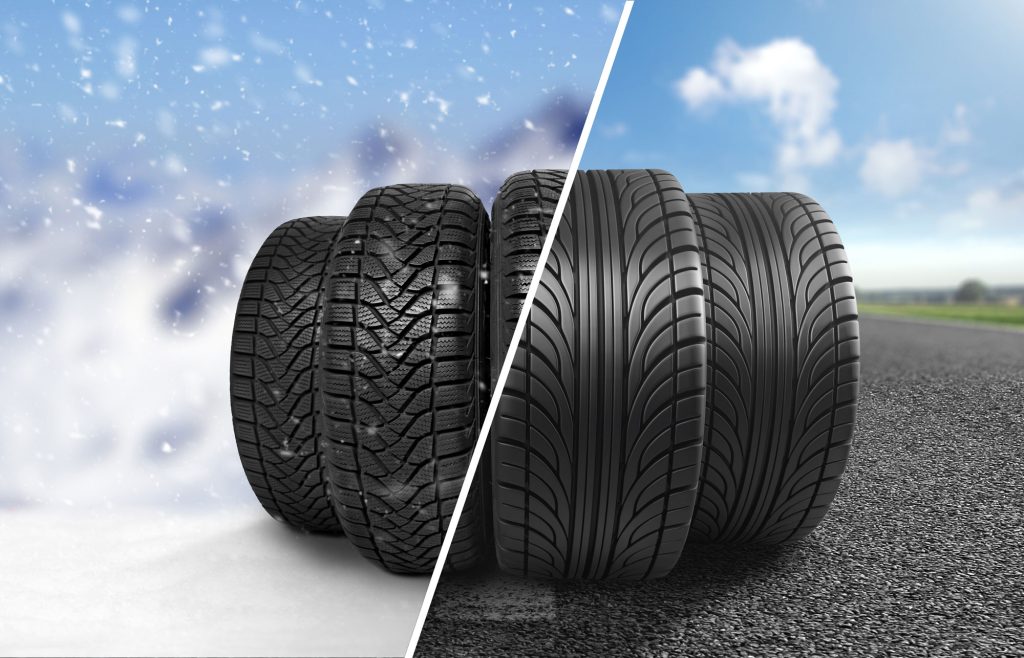Should I buy All Season Tyres for my Car?

At John Wood Tyres, we believe that all-season tyres are significantly important to driving safely and a much better choice than summer tyres in the UK winter. However, it’s vital to understand how they are important and how they compare to their main alternative: dedicated winter tyres. We asked Greg & Lea Wood – Directors at John Wood Tyres to help us break it down. The Problem with Summer Tyres in Winter First, it’s important to know why summer tyres are less effective in cold conditions: Rubber Compound: Summer tyre rubber hardens significantly when temperatures drop below 7°C. Hard rubber means less grip, longer braking distances, and possibly poorer handling, even on dry roads. Tread Pattern: They are not designed to bite into snow or disperse slush and water effectively in icy conditions. How All-Season Tyres Help All-season tyres are a compromise, but a very intelligent one, especially for the UK’s typical winter: Softer Rubber Compound: They remain flexible in lower temperatures, providing decent grip on cold, wet, and dry roads. Versatile Tread Pattern: They incorporate features of both summer and winter tyres, with more sipes (small grooves) to grip in light snow and ice, and channels to clear water. The “3PMSF” Symbol: Many modern all-season tyres carry the Three-Peak Mountain Snowflake (3PMSF) symbol. This certifies that they meet a specific performance standard in snow, making them a genuine option for light winter conditions. All-Season vs. Dedicated Winter Tyres This is where the nuance lies. While all-season tyres are a major improvement over summer tyres, they are not a direct replacement for dedicated winter tyres in all scenarios. Feature All-Season Tyres (3PMSF rated) Dedicated Winter Tyres Best For Typical UK winters: cold, wet, occasional frost, and light/occasional snow. Harsh winters: consistent ice, deep snow, and temperatures consistently near or below freezing. Performance in Snow/Ice Adequate for light snow and getting you home safely in a surprise flurry. Superior. Designed specifically for maximum traction in snow and on ice. Performance in Cold Rain Very good. Excellent for the UK’s most common winter weather. Very good. Performance in Mild & Dry Good. Can be used year-round without excessive wear or noise. Poor. Wear quickly and feel soft/unresponsive in temperatures above 10°C. Cost & Convenience One set of tyres year-round. Saves the cost and hassle of changing and storing a second set. Require a second set of wheels/tyres. Involves the cost and hassle of changing them over twice a year. The Verdict for the UK Driver Given that most of the UK experiences winters characterised by cold, relentless rain, damp roads, and occasional frosts with only brief periods of snow, a high-quality, 3PMSF-rated all-season tyre is an excellent and highly important choice. They provide a crucial safety margin over summer tyres for the vast majority of winter driving conditions you will encounter. You should strongly consider all-season tyres if: You live in Southern England, the Midlands, or urban areas where snow is infrequent. You want the convenience and cost-saving of a single set of tyres year-round. Your winter driving consists mainly of wet and cold roads, with only occasional frost or light snow. You should still consider dedicated winter tyres if: You live in a rural or hilly area (e.g., Scottish Highlands, Yorkshire Dales, Wales) that regularly experiences significant snow and ice. You absolutely must be able to drive regardless of the weather conditions. You are not concerned about the cost and hassle of switching tyres. In Conclusion: Don’t underestimate the importance of tyre choice in the UK winter. Switching from summer tyres to all-season tyres for the winter months is a significant safety upgrade. For most UK drivers, they offer the perfect balance of performance, safety, and convenience for our typically mild-but-treacherous winter weather.

